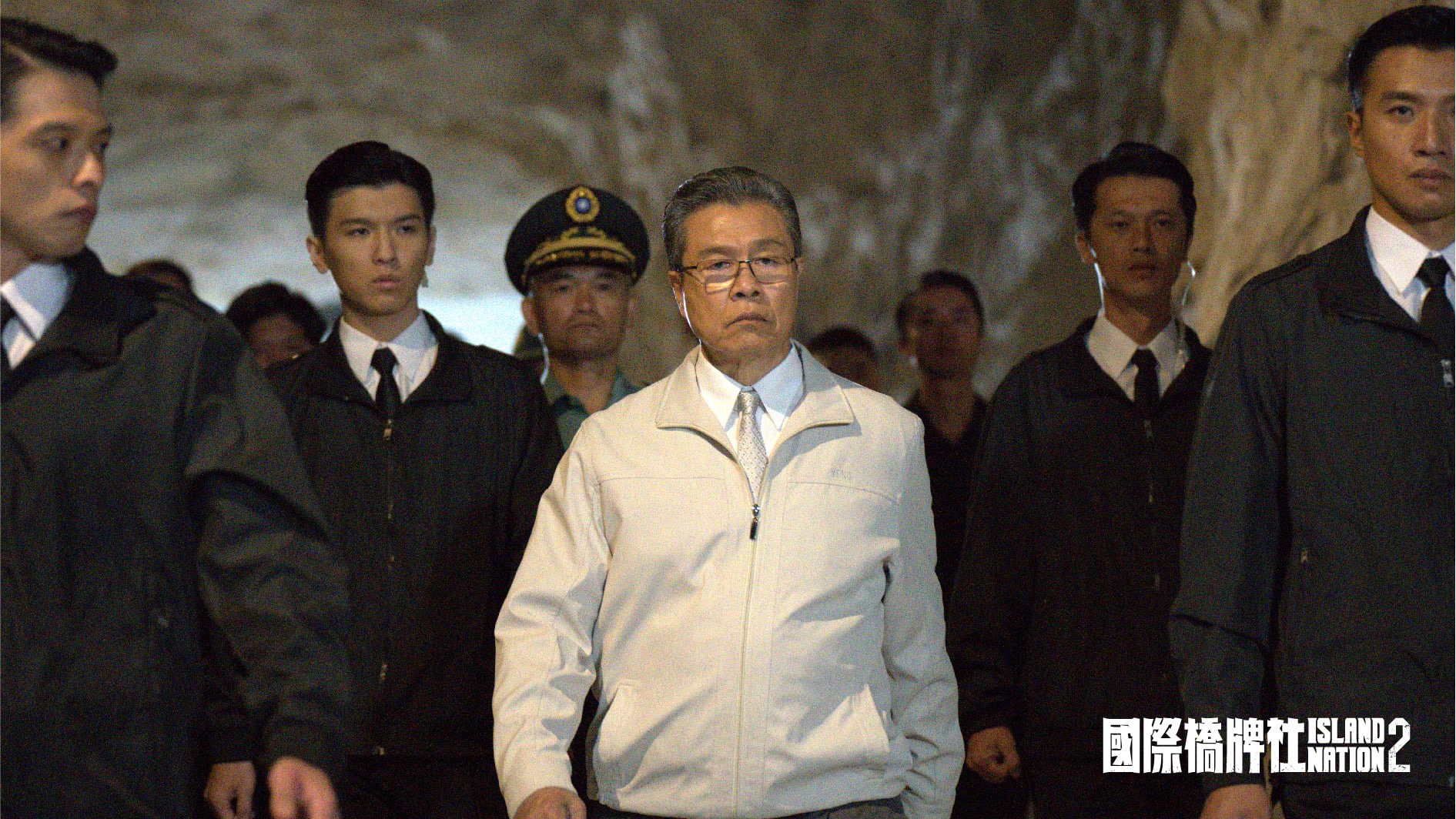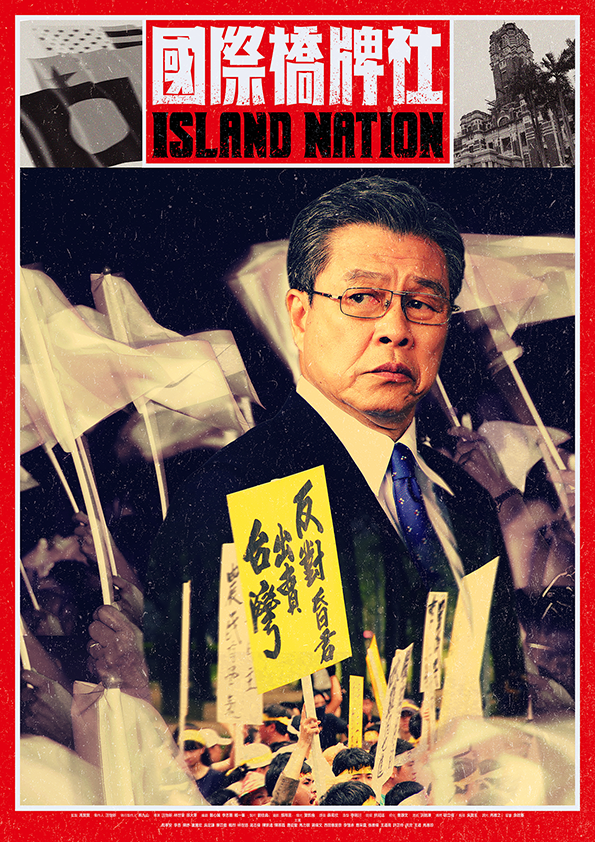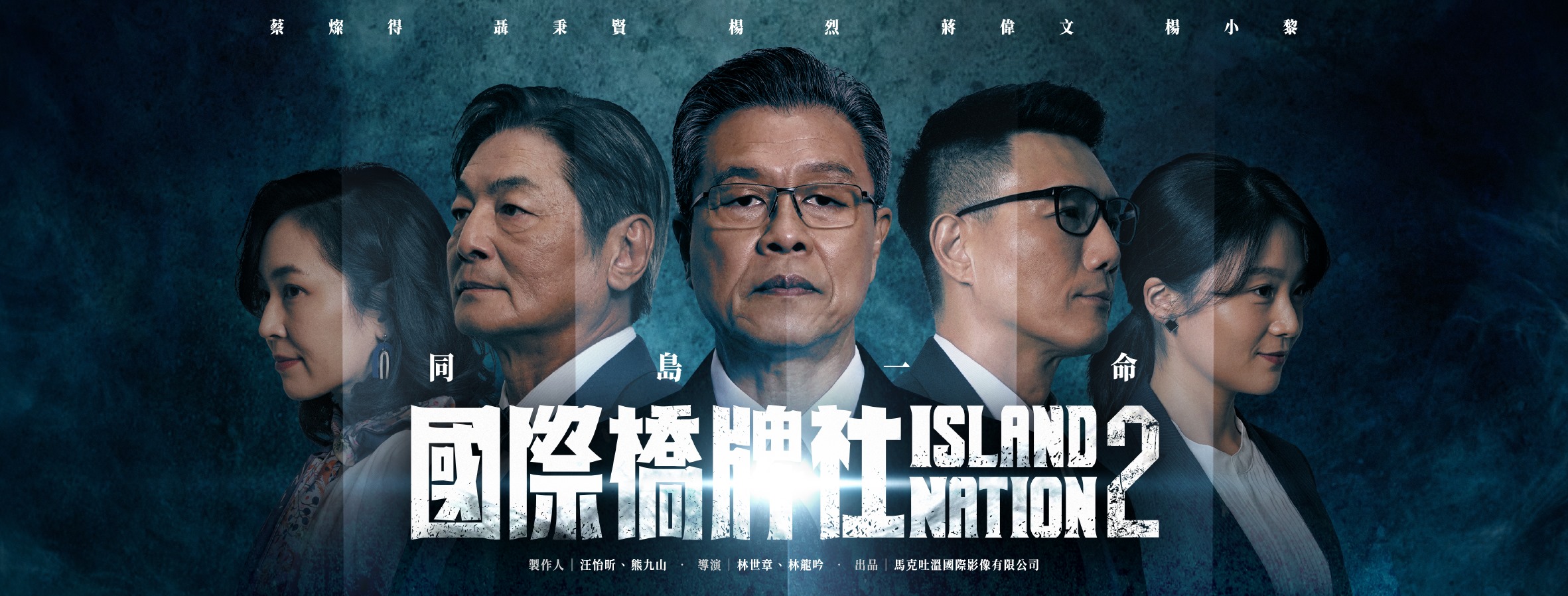by Brian Hioe
語言:
English
Photo Credit: 國際橋牌社 Island Nation/Facebook
ISLAND NATION 2, the second season of 2020’s historical drama Island Nation, continues the first season’s dramatization of recent Taiwanese history. Though the season is off to a stronger start in its first two episodes than the shaky first few episodes of Island Nation, whether or not the show can find a broader audience outside of Taiwan is still up in the air.
Namely, as with other recent Taiwanese historical dramas, such as SEQALU, the work may be too contextually hard to grasp for those with no connection to Taiwan. Indeed, those without direct connections to Taiwan are not as likely to be inherently interested in historical works about Taiwanese history. Nor are works such as SEQALU and Island Nation 2 strong enough on their own right to warrant an international audience.
As with the first season, Island Nation 2 follows fictional president Lee Ching-bo of the “National Party”, the show’s fictionalized version of the KMT. Lee is himself more or less a stand-in for Lee Teng-hui. Other real-life political parties are also referred to by fake names, such as the “Democratic Party” instead of the “Democratic Progressive Party.”

Photo credit: 國際橋牌社 Island Nation/Facebook
And, as also seen in the first season, cameos of real-life political figures are sprinkled throughout the show—New Party youth spokesperson Wang Bing-chung, who faced charges of being a Chinese spy in 2017, is among those to appear so far in a role as a TV announcer. Legendary Taiwanese punk rock bank LTK Commune, known for its left-wing, pro-independence political stance, too, appears in the first episode, having also featured heavily in the 2020 film Classmate Minus.
The first two episodes depict events such as Lee Teng-hui’s 1995 speech at Cornell. Taiwan. Early indications are that the season will focus to a great extent on US-Taiwan relations in the 1990s, particularly regarding the Clinton administration’s perceived pro-China stance among Taiwanese politicians. This particularly proves of a note with the Biden administration in power, following the turbulent years of the Trump administration—which were nonetheless seen by many as having led to strengthened US-Taiwan relations. The imagination of the 1990s through a contemporary production released in 2021 can perhaps shed light on how Democratic administrations came to be perceived in Taiwan as friendly to China, while Republicans came to be seen as allies of Taiwan that were more willing to stand up to China. By contrast, the depiction of the show’s DPP and New Party stand-in is somewhat strange, with the two simply depicted as minor rival political factions out to get Lee Ching-bo’s National Party. The New Party analog seems to take on most of the role historically played by anti-localization factions within the KMT.
As with SEQALU and other dramatizations of large-scale historical events, some liberties are taken. It is unlikely, after all, that in historical reality that the same small set of political operatives or journalists could be present in so many places at once. Fan Zhen-fei’s journalist character of Su Wan-zhen is everywhere from the press delegation accompanying Lee Ching-bo’s flight to the US to conducting field reports on gangsters in Yunlin, while Johnny Lu’s gangster/political operative Chen Qing-tang travels between rural Taiwan, Hawaii, Myanmar, and Singapore several times within just two episodes. Though this stretches credibility, such liberties are perhaps necessary to provide an entry point into these larger historical events. In this, Johnny Lu’s performance is head and shoulders above those of other actors, managing to emote very much with simply his expressions in a way that other cast members are not able to.

Photo credit: 國際橋牌社 Island Nation/Facebook
But as with SEQALU, Island Nation 2 suffers from poor acting by its non-Taiwanese actors in a way that drags down the production as a whole. This is not likely to help a production that aims at an international audience, with non-Taiwanese actors that are fluent English speakers seemingly instructed to mechanistically read lines from their script even when the script contains blatant and obvious English errors—in one scene, Taiwan is referred to by an American character as “the Taiwan”, along the lines of “the Philippines” or “the Gambia.”
Island Nation 2’s English subtitles are also awkward and ridden with errors. Although this is not an obstacle for comprehension, the results come off as amateurish, when these errors would have easily been fixed by a qualified editor or two. As such, one ultimately expects obstacles for Island Nation 2 finding success in an international market, even if this seems to be an avowed aspiration of the drama.



